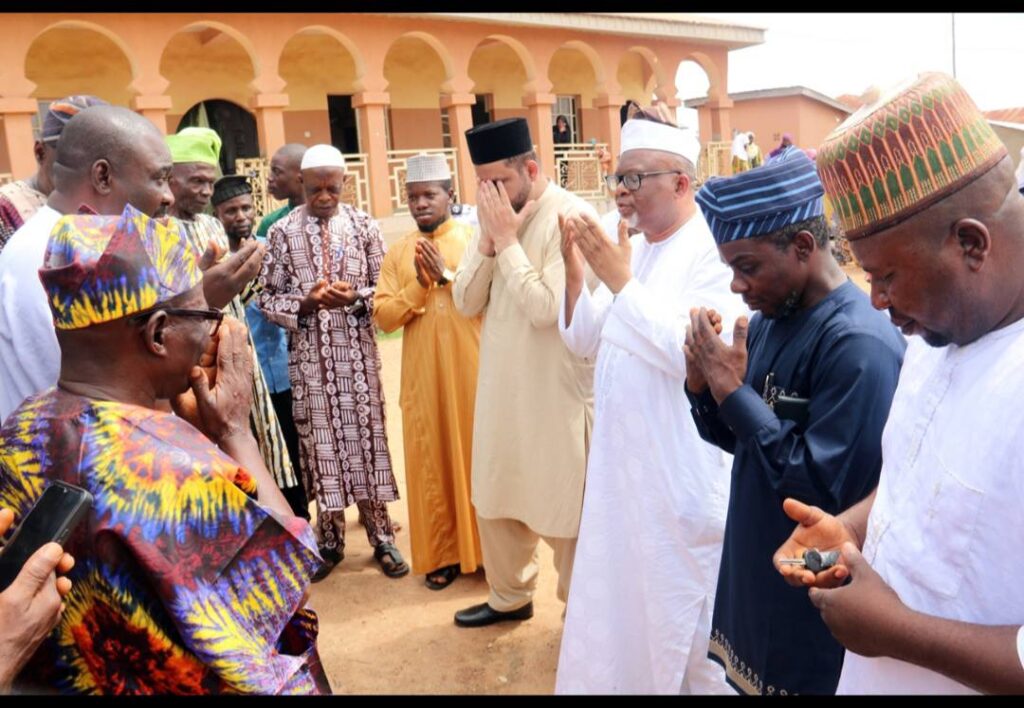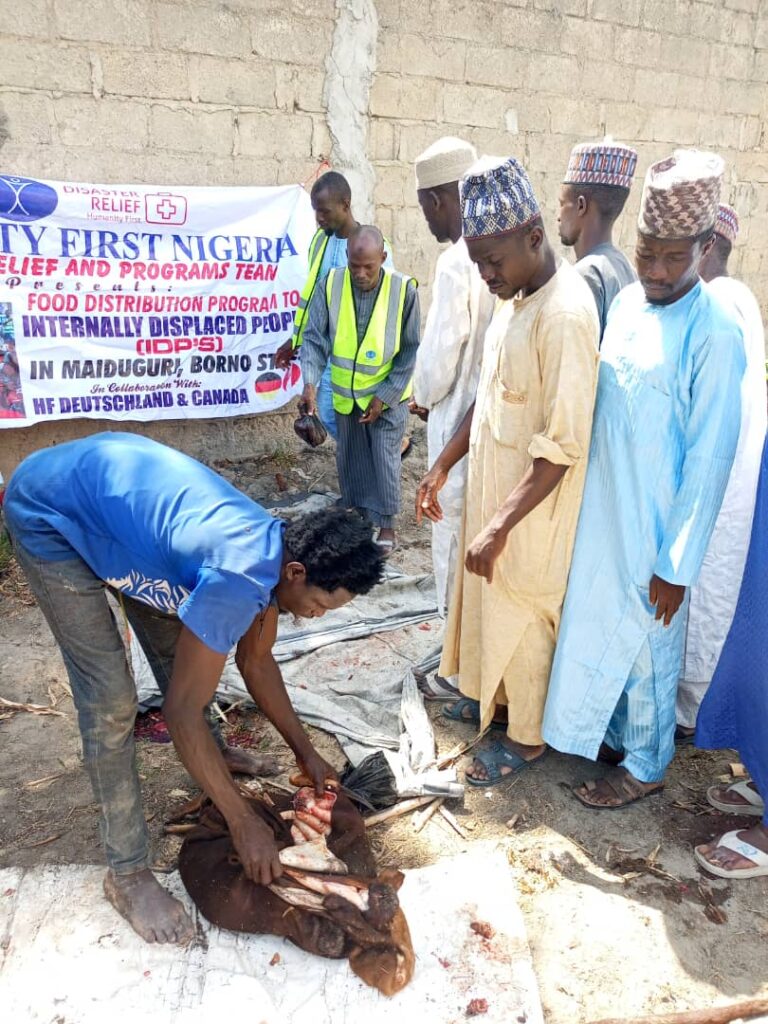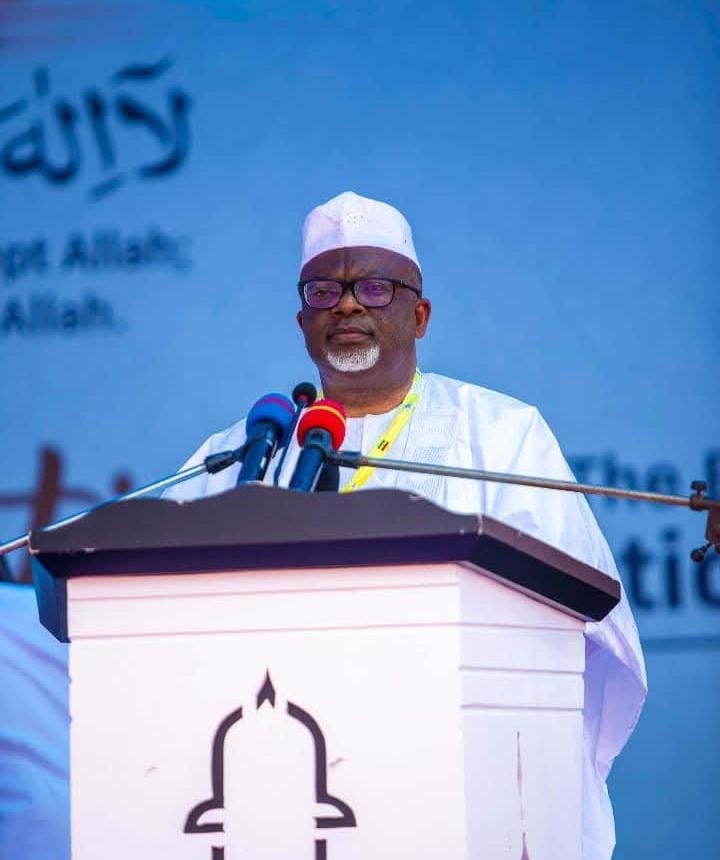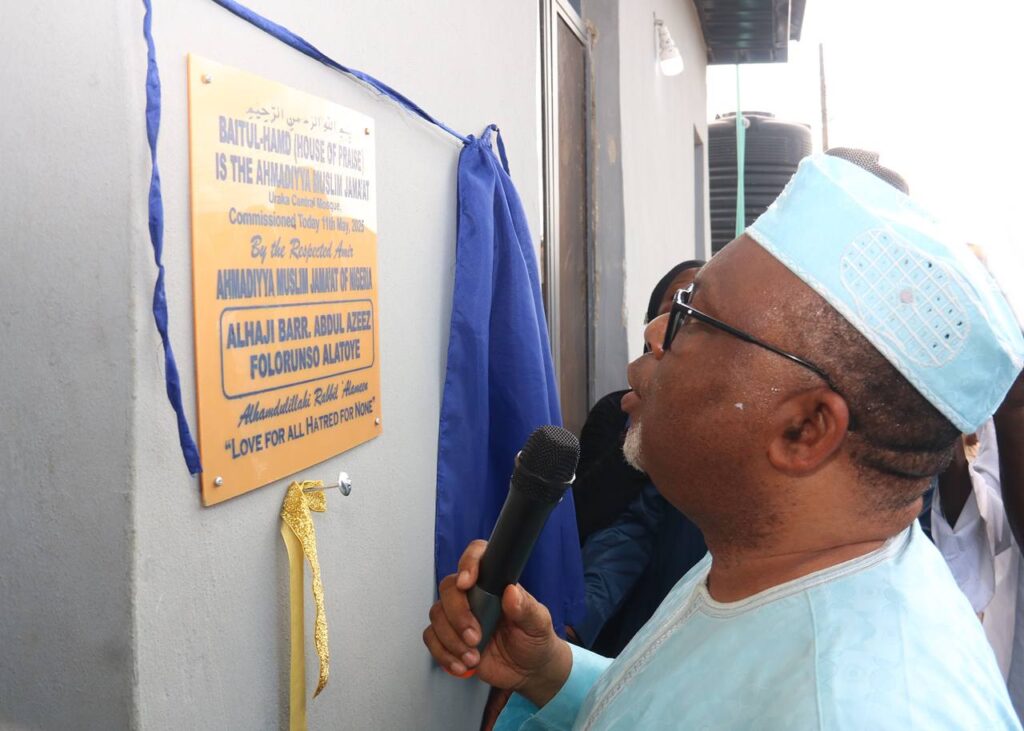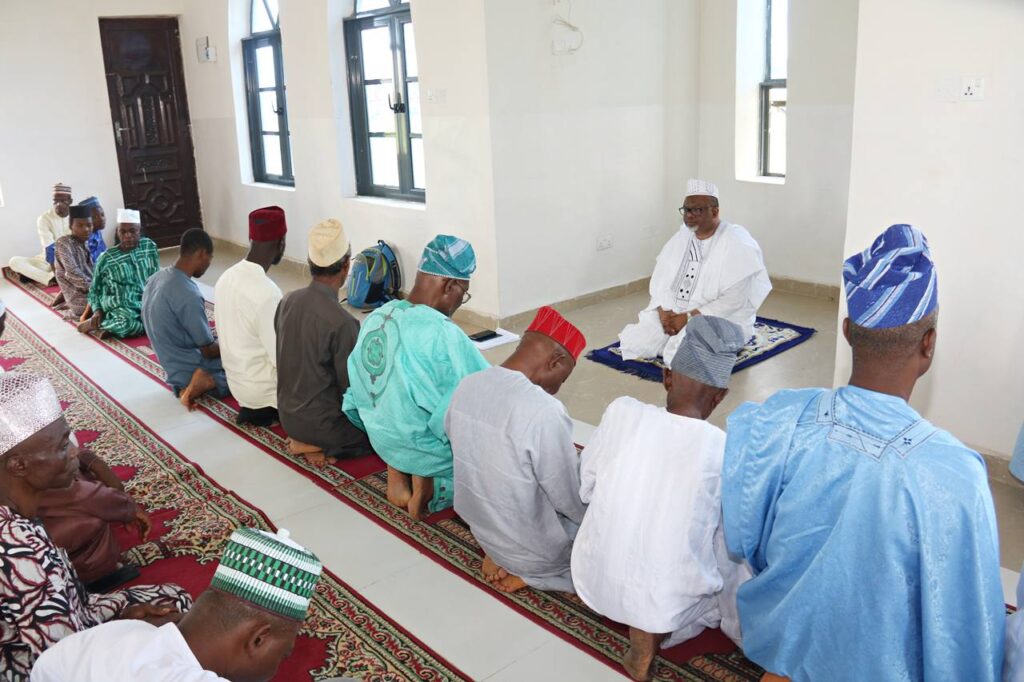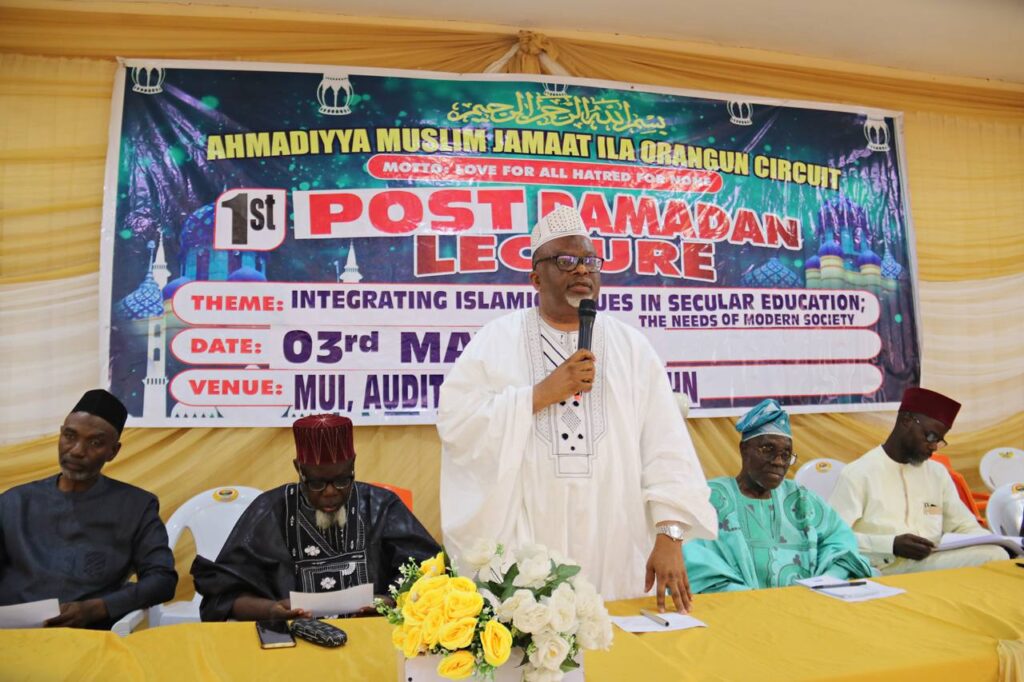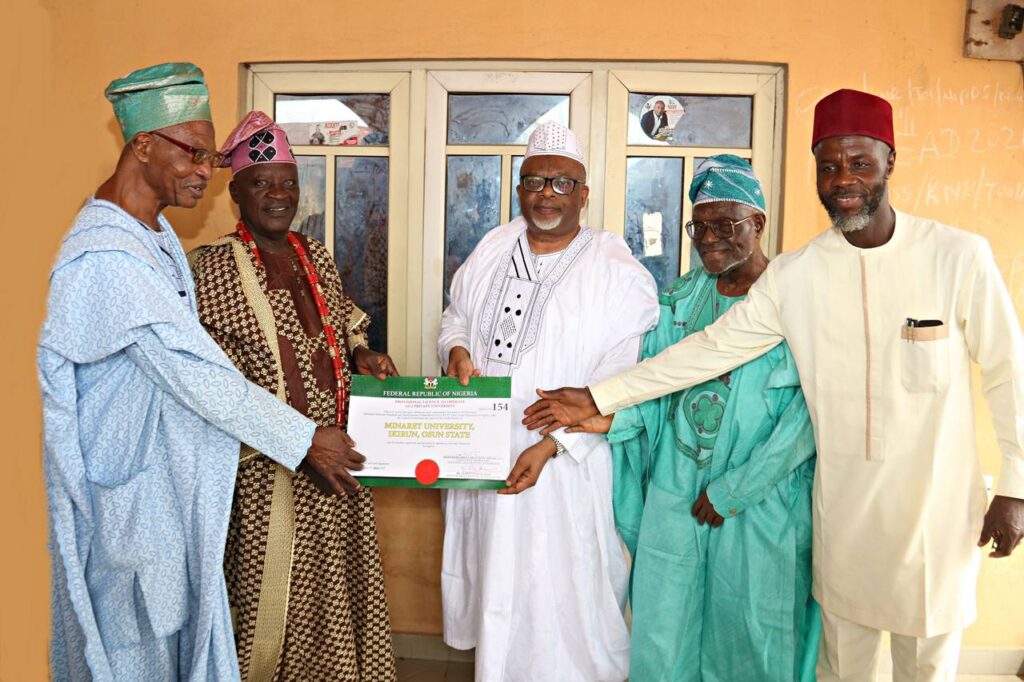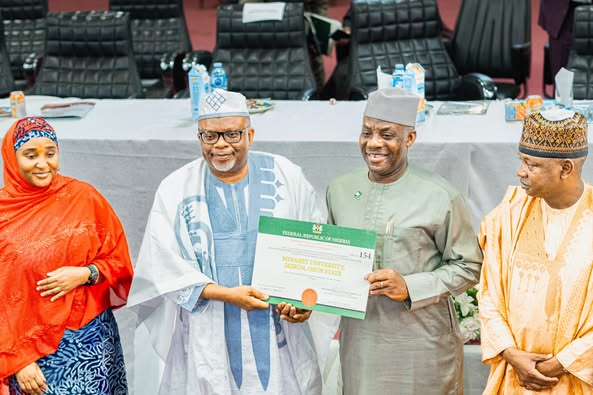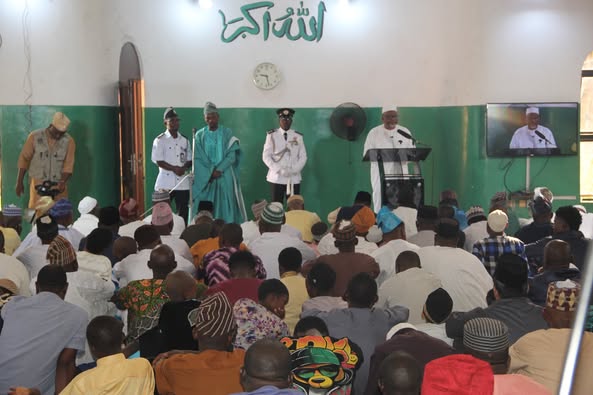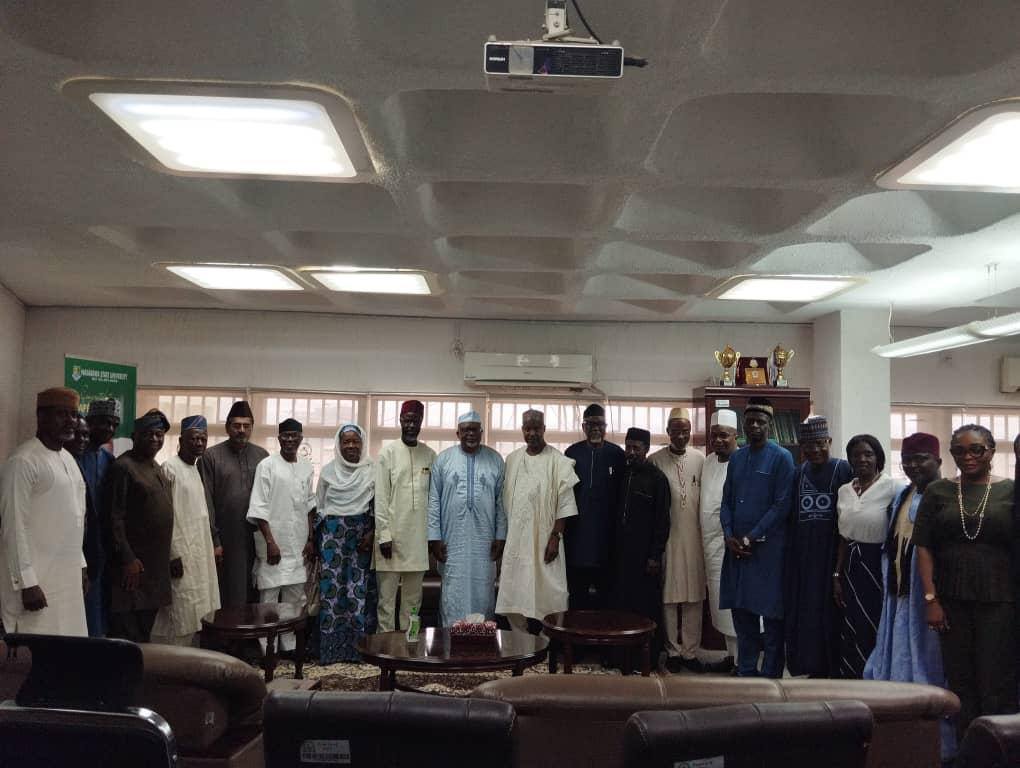In a modest but meaningful ceremony on Wednesday, 30th April, 2025, the National Universities Commission (NUC) handed out provisional licenses to 11 newly approved private universities. The event took place at the Idris Abdulkadir Auditorium in Maitama, Abuja. Among the recipients was The Minaret University, Ikirun, a project of the Ahmadiyya Muslim Jamaat, Nigeria. The ceremony began at 3:00 PM. By the time it ended, 11 institutions had their licenses in hand—and a long list of expectations to go with them. Minaret University’s delegation was hard to miss. 13 in total, led by the Amir (National Head) of the Jamaat, Alhaji (Barr.) AbdulAzeez Alatoye Folorunsho. Others in the entourage included Maulvi Adnan Tāhir sahib, Prof. Mashhud Adenrele Fashola sahib, Dr. Ganiyu Enahoro, Dr. Abdullateef Busari, Barr. Kofo Abdussalam Alada, Prof. Abdullah Abdurrahmãn, Alhaji Lakunle Bello, Alhaji Ahmed Sanusi, Maulvi Nasir Ahmad Mahmood, Alhaji (Dr.) Hassan Adebayo Sunmonu, Dr. Mulikat Abdussalam, and representative of Majlis Khuddam, Abuja Ilaqa. NUC’s Executive Secretary, Prof. Abdullahi Yusufu Ribadu, at the event, noted that the licenses are provisional, and universities will be monitored As each new institution will be paired with an older, more established university for mentoring. The idea is to keep quality high from day one. Then came the Honourable Minister of Education, Dr. Maruf Tunji Alausa. His message was for these new institutions to Focus on science, technology, and vocational training. No shortcuts. No race for profit. “These universities must be more than campuses. They must be engines of real development,” he said. He also announced a pause on new private university approvals while the system catches its breath and strengthens regulation. “You’ve crossed the line,” he added, “but now the real work begins.” Prof. Suwaiba Sai’d Ahmad, Honourable Minister of State for Education, called for stronger partnerships between public and private sectors. “Think beyond degrees,” she told the audience. “You’re here to build minds, not just award certificates.” Senator Dandutse Muntari Mohammed, Chairman of the Senate Committee on Tertiary Institutions and TETFund, took the long view. He praised the expansion of private education as vital to Nigeria’s future and tipped his hat to President Bola Ahmed Tinubu’s support of initiatives like the new Student Loan Fund, aimed at helping students afford tuition and living costs. But perhaps the most blunt of the day was Prof. Ishaq Oloyede, Registrar of the Joint Admissions and Matriculation Board (JAMB). He didn’t mince words: “Without integrity, you have no business running a university.” He warned against backdoor admissions, fake results, and unearned degrees. He also advised all the new institutions—especially faith-based ones—to be upfront about their affiliations. “Don’t hide who you are,” he said. He further urged the immediate coordination of these new institutions with JAMB and NUC to meet admission requirements for the 2025–2026 cycle. Towards the end of the event, proprietors from each institution were called forward to receive licenses on behalf of the institutions as the licenses were presented by the dignitaries. The event ended on a reflective note with a closing prayer by Maulvi Adnan Tāhir sahib, invoking guidance and purpose for the work ahead. For The Minaret University, Ikirun, the moment is a major step forward. Backed by the long-standing educational vision of the Ahmadiyya Muslim Jamaat, it now joins the fold of Nigeria’s tertiary institutions.

